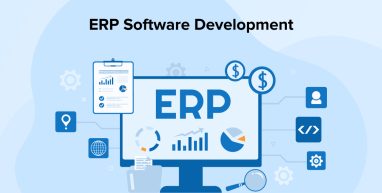
In today’s time, every organization from every domain is moving towards digital transformation to stay ahead of the competition in offering the best services to their clients. For this, businesses need to hire software development service providers that can help them with accurate planning and real-time control of the business process. Using enterprise resource planning (ERP) systems guarantees these types of business procedures, which not only integrate any business processes but also help in managing them. ERPs enable organizations to handle a large amount of production, supply chain data, and more. Let’s go through this blog to learn more about ERP software development , its benefits, requirements, types, how businesses can develop it, and what it will cost.
1. What is ERP Software?
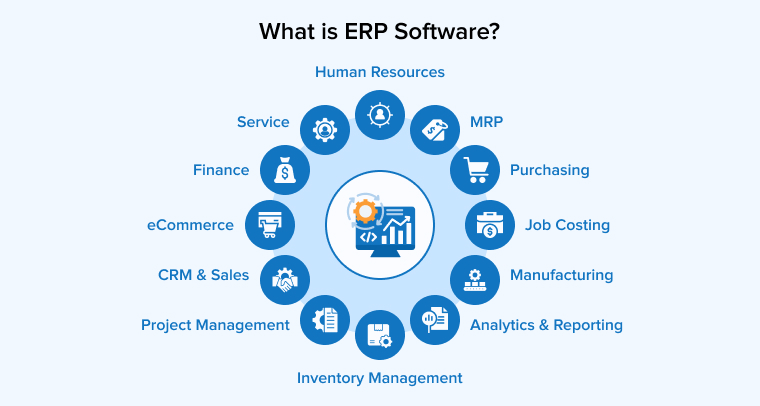
Enterprise resource planning (ERP) is a type of software that the majority of the organizations in the market use to manage their day-to-day business activities like project management, accounting, risk management, procurement, inventory management and supply chain operations. Big organizations take advantage of ERP’s complete suite that comes with various software modules that can help in budgeting, planning, predicting, & reporting a firm’s financial results,enterprise performance management and human capital management.
Basically, an ERP system has the capability to tie together various business processes and can run the flow of data between them. In addition to this for customer relationship management, an ERP system can also help organizations to collect shared transactional data and eliminate duplicate details to offer quality assurance and data integrity with a single source.
This means that ERP software is an integrated platform that can be present on either the cloud or on-premises to help organizations handle all the aspects of logistics management or production business. Additionally, ERP software can manage human resources, financial management, supply chain management, and manufacturing.
1.1 Benefits of ERP
Some of the major benefits of enterprise resource planning are –
- Simplified Maintenance: When any company internally builds an ERP app, its team can offer customization and ongoing support for the system.
- Dedicated Modules: The majority of employees and stakeholders usually utilize enterprise resource planning software, so it must be easy to use. In this case, if the ERP system is custom-based, employees can only use the modules that their firm or team requires. This means that a custom-based ERP system works on the concept of minimum privilege for each department.
- No Changes in the Workflow: The ERP system offers one of the biggest benefits, as it allows companies to avoid changing their operational processes to accommodate the uncustomized management system; the ERP software handles everything.
- Easy to Maintain: Generally it happens that when there are any issues or bugs in the third-party software, any organization using it has to contact the vendor but with an ERP system, the in-house developers are aware of the solutions and can easily maintain it as ERPs are not complex.
1.2 Drawbacks of ERP
With benefits, there are also some drawbacks of the ERP system and they are –
- Development Time: The development of ERP solutions is a time-taking process. The developers have to create the business logic, design the system in such a way that it is flexible, and test each layer of it to deliver it bug-free. And then they have to train the employees of the hiring organization. All these things take a lot of time in comparison to other third-party software.
- Price: Generally companies prefer to stick to third-party solutions than select ERP and use a subscription model. The reason behind it is that for an ERP system, organizations have to pay for the application and its convenience & flexibility.
2. Why Does Your Organization Need ERP?
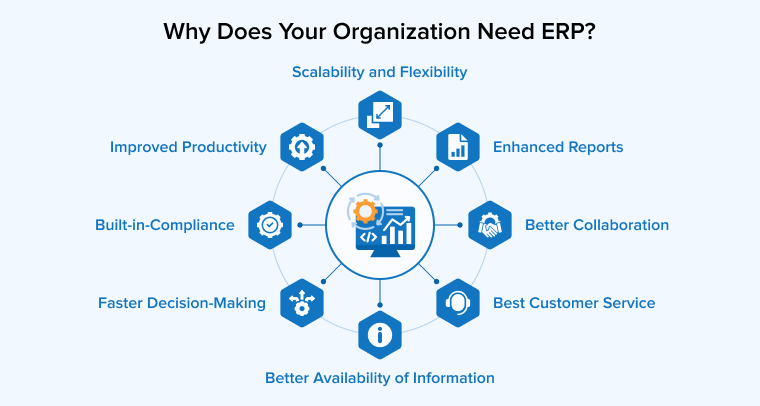
There are multiple reasons behind companies choosing ERP systems for their business. Some of them are operation improvement, business expansion, and cost reduction. Besides this, ERP is an approach that enables businesses to modernize their legacy systems and enhance the customer experience. Here let’s go through some of the many reasons behind companies needing an ERP system –
2.1 Better Collaboration
ERP is a unified system that has all the required business-related data which can eventually help in improving the cooperation between various departments of an organization. It helps reduce communication delays inside the firm and is beneficial for any organization that has a distributed network of affiliates in multiple places.
2.2 Improved Productivity
ERP is an approach that enables companies to automate their routine processes and manual tasks which eventually benefits in saving a lot of time that goes behind managing tasks and day-to-day business processes. Besides this, it also eliminates instances of duplication and rework. This helps employees complete their tasks in a shorter period of time and perform better. It also enables the integration of various other systems that lessen repetitive work and generates revenue for your business.
2.3 Faster Decision-Making
With a custom ERP system and integration in your core business processes, employees can get access to a real-time view of data, with easy-to-use reporting and analysis that empowers intelligent decision-making. For example, with an ERP system, you can see which workflows are efficient and which ones are losing you money.
2.4 Built-in Compliance
It’s important that your business maintains regulatory compliance. One of the most powerful advantages of ERP systems is that they help keep track of industry regulations and changes in compliance. This allows businesses to stay ahead and comply with guidelines, relevant laws, and specifications.
2.5 Better Customer Service
Another major benefit of ERP is that it helps in offering better customer service. Centralized data storage provides all necessary information on sales and clientele. This makes it easier for sales managers and customer support staff to communicate with clients and reduce delays in offering services to customers.
2.6 Scalability and Flexibility
ERP software allows adjusting its scale according to current needs and situations. An ERP system easily adapts to the expansion or reduction of the company on every level. ERP systems can easily handle changes such as production increases, inventory extensions, and the addition of new functions, services, or users. In short, it helps in enterprise digital transformation.
2.7 Enhanced Reports
ERP software leads to reduced paperwork and improved communication among departments. It helps in the quick and easy submission of all kinds of reports such as financial, customer behavior, technical maintenance, etc.
2.8 Better Availability of Information
Advanced ERP systems enable the effective and centralized collection, processing, and storage of information on the product, sales, or customers. In this way, we use a single data system instead of multiple databases that require regular checks and synchronization to remove duplicate or obsolete information.
3. What are the Types of ERP?
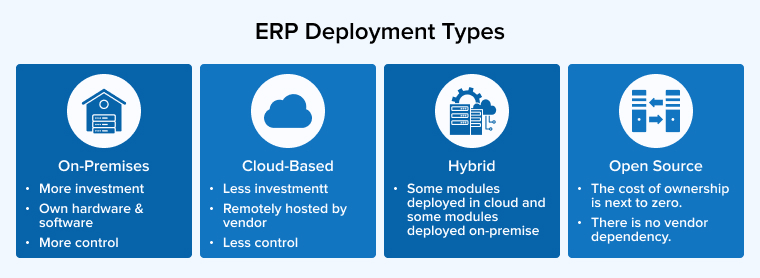
Some of the main types of ERP systems are –
3.1 On-Premise
On-premise is one of the types of ERP systems that enable users to control everything. It offers total control to the users of their ERP system’s security. But when it comes to implementing on-premise ERP, any company has to have dedicated IT resources in the organization that can help handle the server maintenance and application. Some of the major advantages of on-premise ERP includes –
- Offers strong integration with various other systems that are already in use by any organization.
- It is a system that can be easily customized as per the users’ specific business requirements.
- This type of ERP module has the capability to handle sensitive and confidential data of the firm which means that there is no need for a third party.
3.2 Cloud-Based
Cloud-based ERP system is mostly referred to as Software as a Service (SaaS) that is handled by a third-party provider. It comes with a design that is flexible for the use of any organization and its staff members which helps surfing and to store data through any device is an easy task. Besides this, a cloud-based ERP system offers various other advantages –
- The users don’t need to make a substantial initial investment to get access to the system.
- No specialized skills are required from the team members to implement the system into the firm as everything is handled by a third party.
3.3 Hybrid
Another type of enterprise resource planning module is a combination of both on-premise and cloud-based ERP which is known as Hybrid ERP. It enables businesses to benefit from both the above discussed approaches to meet their needs. This model enables employees to use the expertise of ERP vendors without allowing them to access all your information. It is also known as a two-tier ERP. Some of the major benefits of hybrid ERP are –
- It offers innovation and responsiveness to business requirements.
- The processes carried out by this model are simpler and this makes the workflow less complex.
3.4 Open Source
The last type of ERP model in our list is open-source ERP. It is an inexpensive system that comes with free alternative options for some organizations. There are many different types of open-source ERP solutions that enable businesses to download the free software option with a very minimum annual fee only for cloud access. This type of ERP offers minimal support to the users from the provider. Besides this, in an open-source ERP system, the organizations have to handle the configuration of the system. Some of the benefits of open-source ERP systems are –
- The cost of ownership in the open-source ERP system is next to zero.
- There is no vendor dependency for anything.
4. ERP Software Development Process

ERP software development is a complex process because of the variables and roles involved in it from various departments and occupations. Therefore any organization that decides to have its own custom ERP software, the software developers of the organization need a lot of time to design the system for each sector. Some of the important steps that they require to take in this ERP software development process are as follows –
4.1 Clear Definition of the Idea
While developing an ERP system, the developers need to have a clear idea about the project, its features, and a rough estimation of the cost as these are things that can explain the company’s requirements.
4.2 UI/UX Designing
Once the requirements of the project are clear, the most important thing to do is design the top concerns of the enterprise resource planning system. In this stage, the team of software developers designs user roles, charts, navigation elements, and other components in perfectly designed wireframes.
4.3 Tech Stack
The next stage after creating the wireframes and finalizing the look & feel of the system is to finalize the tech stack that can help engineers in creating the entire system. Here, the selection of the tech stack depends on the type of platform chosen which means that if the ERP system is focused on the Windows desktop platform C++ or C# are the best choices. But if the system is for the iOS desktop platform, Swift or Objective C must be chosen. And if the ERP is for a web-based project, tech stacks like Node.js, Angular, and Bootstrap are the best options.
4.4 Integrations
After developing the ERP system, taking into account the use, it is essential to check the workflow of the organization and see which third-party products the firm uses, as the integration of the custom ERP software system with those internal processes might be required. Generally, companies use services like FreshBooks, G Suite, Office 365, and more, and these must be combined with the ERP system. This is essential as sometimes it happens that such integration can change the large modules of the enterprise resource planning software.
4.5 QA
The last step after integrating the ERP with the current third-party systems that are in use is to check the quality of the system. In different phases of the ERP system, software testing is carried out. For instance, unit testing is carried out to check the new features of the system, system testing to validate the integrated version, and functional & non-functional testing to check and assure the quality of the end product.
5. ERP Software Development Cost
The cost of the ERP software development depends on the number of features the system requires, the exact number of roles that need to be there in the system, and more. Besides this, some major factors that affect the ERP software development cost are –
- The development and integration process of the ERP system are the two main reasons behind the price formation as they specify the complexity of the project.
- The training time and resources that must be given to the employees to adopt the new system affect the ERP software development cost.
- Maintenance and upgrades also play a huge part in the cost of the ERP system as they must change as the workflow of the organization changes.
By considering all the factors from development, company adjustments, training, upgrades, and maintenance, the cost of any ERP software development for large-scale companies might reach up to $400k.
6. Conclusion
As seen in this blog, enterprise resource planning systems have become essential for businesses as they help in their operational efficiency and breaking the barriers between the different departments of the firm and their performance. Organizations adopt ERP systems to have a successful operational approach that can streamline the entire business process, and offer transparency & visibility in the business functionality of the firm.


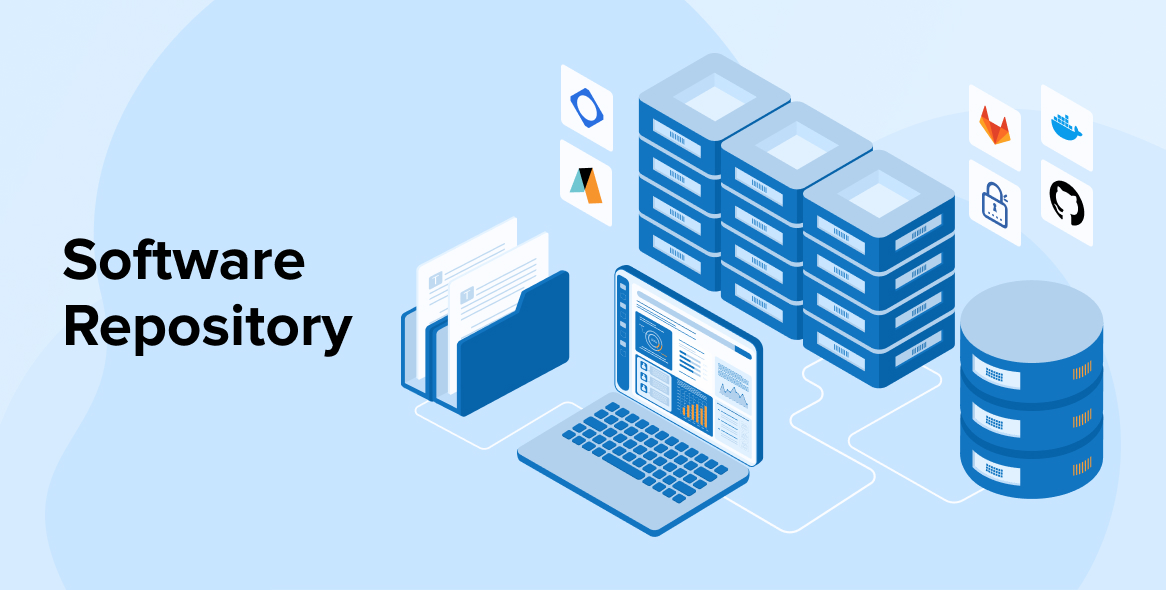
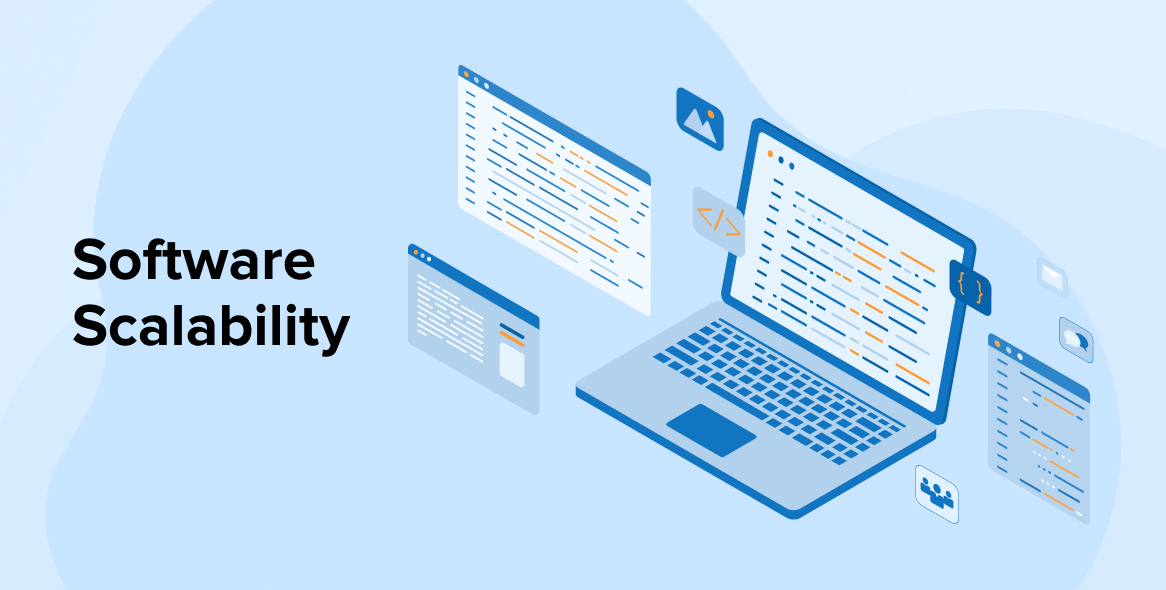
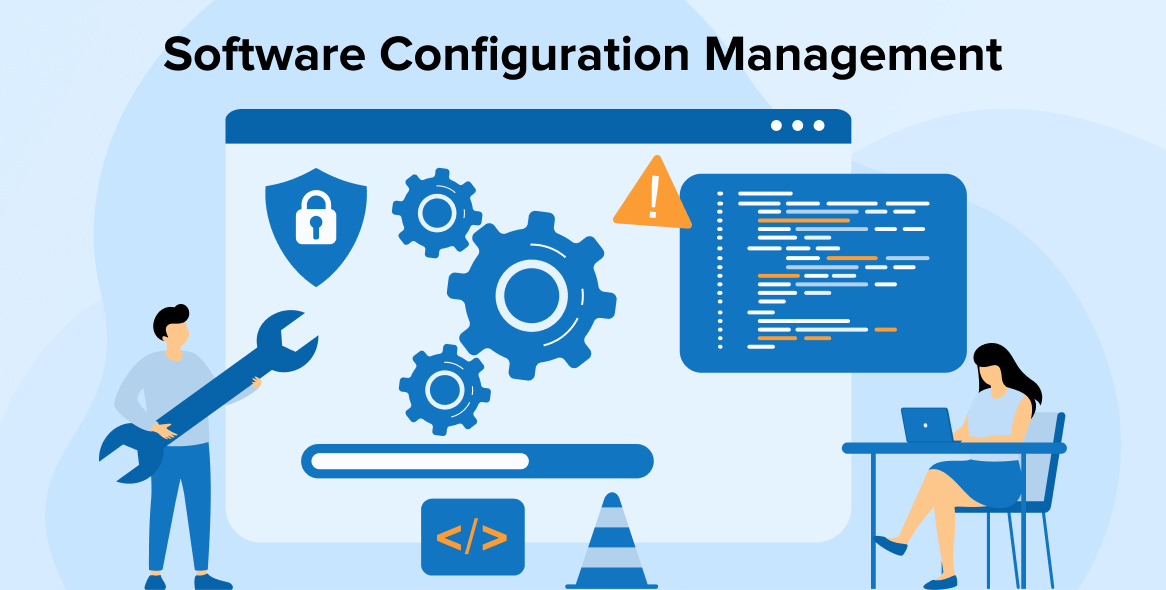

Nice article! Article discusses every aspect of ERP software development.Most important part of this article is the development process of ERP softwares.
This is a very informative blog post on ERP software development! It covers a lot of ground, explaining what ERP is, the benefits it offers, and the different types of systems available. This blog post is a great resource for any business considering developing its own ERP system. It provides a clear overview of the process and the factors to consider when making this decision.